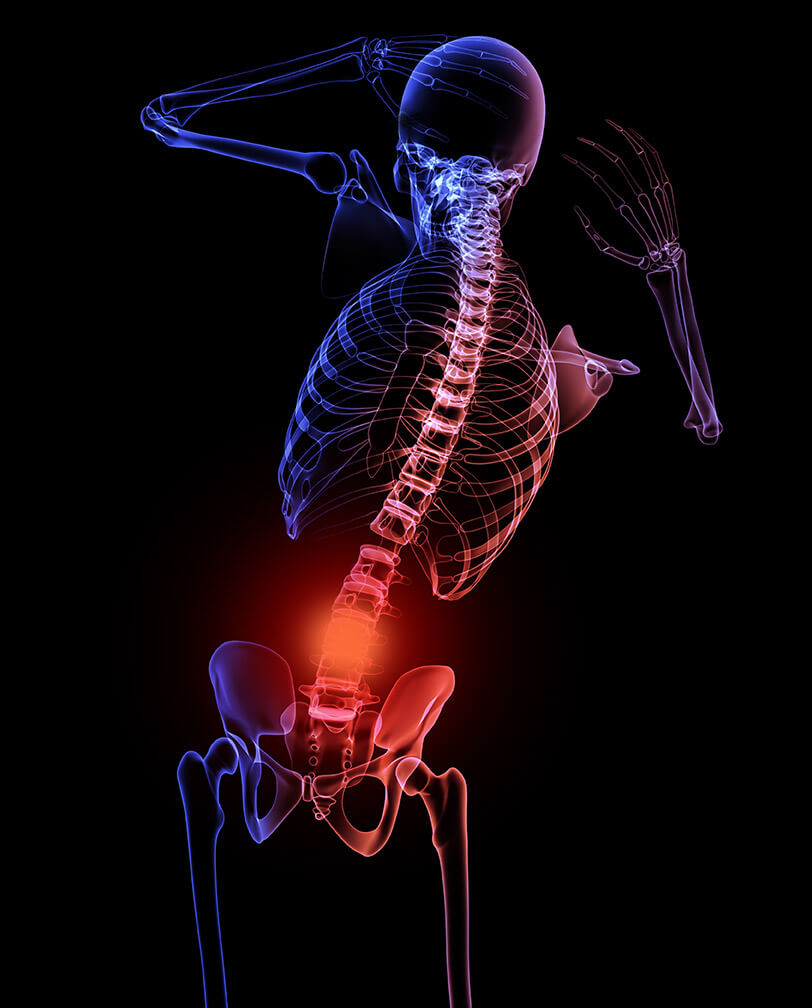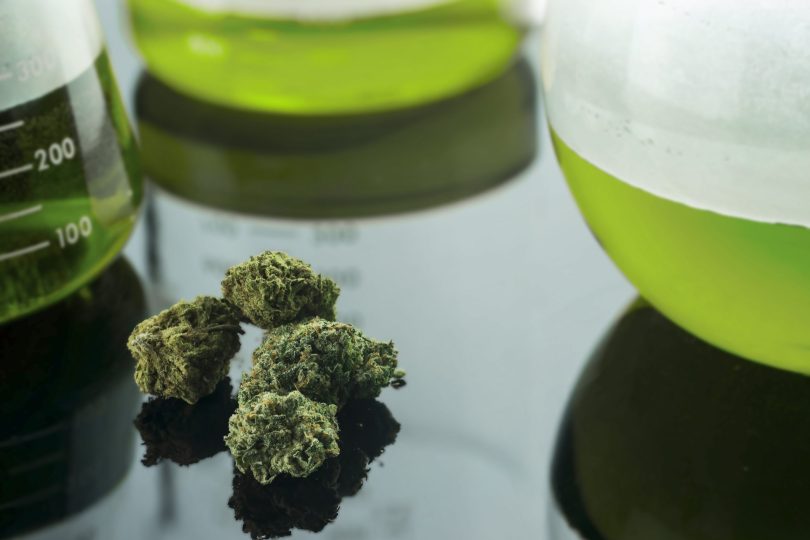Using CBD Oil for Pain Management Explained

Since the rise of opioid overdoses, physicians have decreased prescribing them for patients with pain. As a result, people dealing with pain have had to look for alternatives and have discovered CBD oil for pain.
Certain people with persistent pain utilize topical CBD products, such as CBD oil to manage their symptoms. CBD oil may help to reduce the following:
- pain
- inflammation
- overall discomfort caused by several health issues
CBD products and pain relief are beneficial.
According to preliminary research, CBD may be a safe and effective treatment for chronic pain. In addition, CBD has shown promise as an alternative for people who use prescription medications, such as opioids, that might become habit-forming and produce additional unwanted side effects.
However, more study is needed to verify CBD oil’s pain-relieving qualities.
What is CBD?
Cannabidiol, or CBD, is a chemical component found in the cannabis plant. Although CBD is not intoxicating, it may cause drowsiness. The cannabinoid extract in most things is derived from hemp, a type of cannabis with only traces (up to 0.3 percent) of THC, the psychoactive ingredient that makes people high.
CBD, a non-intoxicating chemical component of cannabis, can help those who suffer from chronic pain and rely on medicines like opioids that might be habit-forming and produce additional side effects. However, further study is required to determine the analgesic effectiveness of CBD oil and other treatment.
Types of CBD for Pain
Full-spectrum CBD is a form of cannabidiol that naturally includes all of the plant’s beneficial components. There are over 100 cannabinoids, including CBD and tetrahydrocannabinol (THC). Cannabis products’ therapeutic and psychoactive effects are due to CBD and THC. While CBD does not make you high, THC has an intoxicating effect. Full-spectrum is highly sought after, but as always purchase from a reputable vendor who third-party lab tests with results!
Cannabis contains more than 150 terpenes, which have an impact on the plant’s fragrance. An orange has a citrus flavor, for example. Terpenes can also have therapeutic benefits, such as the calming effects of lavender.
Cannabis is high in flavonoids, present in a wide range of plants. Flavonoids may be found in various plants, including fruits, grains, veggies, and other items. They have therapeutic qualities similar to those of terpenes.
The flavonoids present in full-spectrum hemp extract have anti-inflammatory, anti-cancer, and neuroprotective effects, according to research from 2016. Therefore, CBD oil could be helpful for inflammatory and neuropathic pain.
Broad-spectrum – If you’re searching for a health benefit from CBD without the psychoactive side effects, broad-spectrum is most likely your best option.
The majority of broad-spectrum CBD products have little or no amounts of THC, but they should contain less than 0.3% of the total spectrum found in full-spectrum products. This follows the regulations outlined in the 2018 Hemp Farm Bill.
Broad-spectrum CBD is a type of CBD that includes a variety of naturally occurring compounds from the plant but no THC.
CBD shouldn’t show up on a drug test. However, many products include traces of delta-9-tetrahydrocannabinol (THC), which is the main active component in marijuana.
If enough THC is present, it will appear on a drug test. This implies that taking CBD might cause a false positive result on a drug test in rare situations. However, broad-spectrum CBD oil should not show up on a blood test. If you don’t mind THC and want to maximize the benefits of your CBD product, full-spectrum is typically the way to go.
Isolate – This is the purest form of CBD and is often used to make edibles. It might be a good choice for beginners who want to try out the health advantages of CBD without being disappointed by other cannabis components, which may muck up their results. CBD isolate is also refined, making it odorless and taste-free.
A study from 2015 found that CBD isolate may provide certain health advantages, but the effects may be less significant than those seen when taking a full-spectrum CBD product.
CBD isolate appears to have a more significant pain-relieving effect than full-spectrum CBD products. This contrasts to whole-spectrum products, where the effects increase as the dosage rises.
As a result, some people who want to take high doses of CBD may choose an isolate to avoid any undesirable effects. This isn’t always considered a disadvantage. Some consumers may wish for a product devoid of THC or be sensitive to it.
Because there is no THC, this substance should not appear on any drug tests. CBD products, on the other hand, should be treated with caution. Labels stating “THC-free” do not always imply that the product is free of THC. It’s essential to read everything on the bottle, package, and third-party test results to ensure that a person receives all of the information they require, so they don’t get ill as a result of it.
CBD Oil can Help with Chronic Pain
The endocannabinoid system (ECS) is a cellular signaling system that everyone has. Some experts believe that CBD interacts with a significant portion of the ECS – endocannabinoid receptors in your brain and immune system.
Receptors are small proteins that are attached to your cells. They receive information, usually chemicals, from various stimuli and help your cells react.
The body’s response to CBD is complex. However, one of its components, called cannabidiolic acid (CBDA), has an anti-inflammatory and pain-relieving effect that can help with pain-related behaviors. This indicates that CBD oil and other cannabinoids may help people who suffer from chronic pain, such as chronic back discomfort. Recent reports state CBDA and CBGA may help in the prevention of the coronavirus, due to anti-viral properties.
From a 2018 CBD Oil review, research published between 1975 and March 2018, including various forms of pain, such as cancer pain, fibromyalgia, and neuropathic discomfort.
According to research, the best CBD oil was found to help manage pain across the entire body. In addition, these studies revealed that CBD had no adverse side effects and might help with overall pain management.
CBD can Help with Relief from the Treatment of Cancer
Cannabidiol (CBD) is being studied for its effects on cancer. CBD has been found to shrink cancerous tumors in mice. However, most studies have looked at the role of CBD in pain relief related to cancer and chemotherapy treatment.
The National Cancer Institute (NCI)Trusted Source has pointed to CBD as a possible option for reducing chemotherapy’s side effects such as pain, lack of appetite, and vomiting.
In a 2010 research on cancer-related pain, oral sprays were given to participants of a THC-CBD combination extract. In a 2012 study, researchers found that using THC-CBD extract with opiates provided superior pain relief than using the drugs alone.
A 2013 research on THC and CBD oral sprays revealed the same. Many of the 2010 researchers collaborated on this research as well. However, additional study is still required.
CBD Helps to Relieve Pain from Migraines
There are only a few studies on CBD and migraine. In addition, the existing research examines CBD when it’s combined with THC rather than when used alone.
However, a 2017 study found that CBD and THC can help patients with migraine experience less acute and unbearable pain.
Some participants in this two-phase research took a combination of two chemicals in both phases. The first pill included 9 percent CBD and almost no THC. The second pill had 19 percent THC. Doses were administered orally.
According to the research, CBD and THC compounds provided relief from cluster headaches in participants who had a childhood history of migraine.
CBD Oil to Help with Arthritis Pain
Arthritis is both a literal and figurative agony. The disease generally reduces people’s quality of life, necessitates time off from work, and makes it difficult to exercise and stay in excellent shape.
Many people are therefore seeking a pain management strategy that works. Perhaps you’ve been tempted to give it a go. After all, most forms of arthritis don’t respond to other treatments, and CBD is seen as a less addictive alternative to opioids.
CBD products may be used for a variety of ailments. It’s conceivable that marketing influenced CBD’s popularity for everything from arthritis to anxiety to convulsions. CBD has anti-inflammatory and pain-relieving effects in animal studies, but these benefits have not been proven in human studies.
Transdermal cannabidiol reduces inflammation and can be placed on the area where arthritis has flared up. In addition, they can be placed on the area to relieve chronic pain.
CBD Oil for Neuropathic pain
Neuropathy is an umbrella term for a group of disorders that cause pain solely due to damage to nerves. Damage to the nerves, such as in multiple sclerosis, herniated discs, and shingles, can produce neuropathic suffering.
Nerve pain is notoriously difficult to treat, as medications that work for other types of pain often don’t help neuropathic pain. This is where CBD comes in; it has been shown to be effective in reducing neuropathic pain in both animal and human studies.
CBD oil is even more effective at reducing nerve-related pain when taken alongside traditional medications.
CBD Oil for Multiple Sclerosis
MS is a chronic neurological disease that causes symptoms, including tiredness, muscular weakness, and cognitive impairment. MS manifests in multiple ways, yet patients share one thing in common: MS symptoms significantly impact their quality of life.
To fight their symptoms, some people with MS utilize cannabidiol, or CBD, a non-psychoactive component in the plant. Although CBD’s effects on MS have yet to be thoroughly investigated, preliminary evidence suggests that it may aid in the relief of MS symptoms, including pain and stiffness.
Oil drops, sprays, tinctures, capsules, and edibles are all available as forms of CBD oil for people with MS. It can be taken in pill or liquid form (inhalation as well). In addition, vape products and creams for external applications are also on the market.
How to Use CBD Oil for Pain Relief
A wide range of products is available to consumers, including topical ointments containing cannabidiol (CBD) or oils that can be vaporized and inhaled. These may be taken by mouth, applied to the skin, or breathed. Make sure to visit GoodCBD.com, a sponsor, friend and exclusive vendor of our own: 50 Shades of Green CBD Lotion, CBD Pain Cream and CBD topicals. They also carry bulk Delta 9 gummies with THC, CBD for pets, HHC edibles, HHC carts and even HHC-O Acetate gummies. Good CBD is the pioneer in the CBD industry, with third-party tested products where consumers can view the purity and results themselves. Extremely important, are the COA, Certificate of Authenticity when purchasing CBD, Delta 8 THC and Delta 9 THC on the internet; as well as other cannabinoids.
Full-spectrum CBD oil is more potent and effective on pain but may have a harsher taste. On the other hand, CBD isolate is a purer product but doesn’t work on pain. When using CBD oil for pain, start with a low dose and gradually increase it until you find the level that works best for you.
Pros of Using CBD Oil
CBD dietary supplements are straightforward to use. CBD treatments may be administered in various methods, depending on the individual user’s needs.
There are several potencies to choose from. Many high-potency CBD oils are available on the market, but low-potency versions are also available. This makes it simple to acquire something appropriate for your level of pain.
It’s highly effective in treating chronic pain, inflammation, and anxiety. There are a few reported adverse effects, but they are minor in most cases. Experts consider CBD relatively safe and shouldn’t produce serious side effects in most individuals. However, it’s still crucial to speak with your doctor before taking CBD, especially if you’re on medication.
Cons of Using CBD Oil
Allergic reactions are a possibility. In addition, when using topicals CBD, there’s always the chance of getting a skin irritation. As a result, it’s essential to patch test before applying topical CBD oil.
More research is needed, and additional clinical research is required to confirm that CBD may help with joint pain.
Conclusion
CBD oil is a natural remedy that effectively treats chronic pain and acute pain from injuries or surgeries. It does not have the addictive potential of opioids. If you suffer from chronic pain, CBD oil may be a good option. Talk to your doctor about whether CBD oil could help you manage your pain.
References: CBD School









